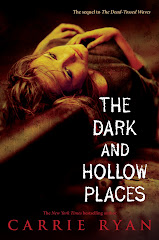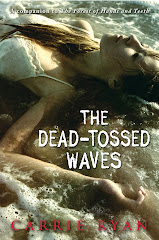Tuesday, June 03, 2008
The Con Agent
This is crossposted from the Manuscript Mavens:
This weekend I went to a local con - ConCarolinas (for a recap, see JP's post here). It was awesome -- totally tons of fun and my first SFF con! Of course, because I didn't even hear about the con until the Monday before and therefore couldn't pre-register, I went rather stealth :)
But here's the thing, over the course of the day I attended, I heard a few authors give advice that kinda made me squirm. And it made me want to blog about it because I felt like some of this advice was perpetuating some myths about agents and getting an agent. Of course, rule number one that I must highlight is that there are often no hard and fast rules. Everyone has their own approach and you have to figure out what works best for you. Even so... here are my thoughts on some oft perpetuated myths (spread out over a few posts...).
One thing that really stuck out to me: a few people (and some of them well published authors) said that the best was to get an agent was to go to cons. Now, while I agree that you can make some great connections at conventions, if you're *only* going so you can attend a pitch session and stalk some agents at the bar, you're wasting your money. Here's the thing, you can be the most fun person ever, you and the agent you meet can go get manis and pedis, you can spend all night sharing embarassing stories and margaritas, but if your book isn't any good, none of that matters. Sure, knowing the agent might get a little more attention, but you still have to deliver the goods.
Agents are generally on the lookout for books they can sell -- they want to fall in love when they open their slush. You don't have to go to cons and meet agents in person in order to have them fall in love with your work. Trust me, I've met plenty of agents at cons and none of them ended up offering me representation for my book (in fact, one of my queries didn't make it past the slush reader for an agent I'd met several times). All the offers I got were from the good old fashioned slush pile. Yes, agents do read queries and they request pages and they make offers without having ever met you!
Don't get me wrong, cons are great things. It's a super fun way to meet other like-minded people and to be surrounded with the buzz of it all. Meeting agents is part of that buzz and it's part of the business. But it shouldn't be the only reason you go. Save the money from plane tickets and hotels instead and invest them in stamps :)
More myths to come next week (unless, you know, I forget or get distracted :)
So tell me what you think -- is the best way to get an agent to go to a con?
This weekend I went to a local con - ConCarolinas (for a recap, see JP's post here). It was awesome -- totally tons of fun and my first SFF con! Of course, because I didn't even hear about the con until the Monday before and therefore couldn't pre-register, I went rather stealth :)
But here's the thing, over the course of the day I attended, I heard a few authors give advice that kinda made me squirm. And it made me want to blog about it because I felt like some of this advice was perpetuating some myths about agents and getting an agent. Of course, rule number one that I must highlight is that there are often no hard and fast rules. Everyone has their own approach and you have to figure out what works best for you. Even so... here are my thoughts on some oft perpetuated myths (spread out over a few posts...).
One thing that really stuck out to me: a few people (and some of them well published authors) said that the best was to get an agent was to go to cons. Now, while I agree that you can make some great connections at conventions, if you're *only* going so you can attend a pitch session and stalk some agents at the bar, you're wasting your money. Here's the thing, you can be the most fun person ever, you and the agent you meet can go get manis and pedis, you can spend all night sharing embarassing stories and margaritas, but if your book isn't any good, none of that matters. Sure, knowing the agent might get a little more attention, but you still have to deliver the goods.
Agents are generally on the lookout for books they can sell -- they want to fall in love when they open their slush. You don't have to go to cons and meet agents in person in order to have them fall in love with your work. Trust me, I've met plenty of agents at cons and none of them ended up offering me representation for my book (in fact, one of my queries didn't make it past the slush reader for an agent I'd met several times). All the offers I got were from the good old fashioned slush pile. Yes, agents do read queries and they request pages and they make offers without having ever met you!
Don't get me wrong, cons are great things. It's a super fun way to meet other like-minded people and to be surrounded with the buzz of it all. Meeting agents is part of that buzz and it's part of the business. But it shouldn't be the only reason you go. Save the money from plane tickets and hotels instead and invest them in stamps :)
More myths to come next week (unless, you know, I forget or get distracted :)
So tell me what you think -- is the best way to get an agent to go to a con?
Subscribe to:
Post Comments (Atom)
















1 comment:
When my agent bloggged that she signed me after meeting me at convention commenters were quick to jump on the Who You Know band wagon.
Yes, I did (very informally) meet her at a small regional conference (after she rejected me once, btw) months before she signed me—but more importantly in that time I rewrote the story, was recommended to her by another agent, and had seen online that she was looking for XYZ and my book was XYZ.
The only thing meeting her may have helped me with was getting past her reader. But more than likely, my much improved query letter got me through to the next round all by itself.
That said--I think the good thing about agents and conventions is that you get to see them live and in action--not as just an entry in Publishers Marketplace. You get a better feel for their style and personality and attitude toward their authors.
Post a Comment